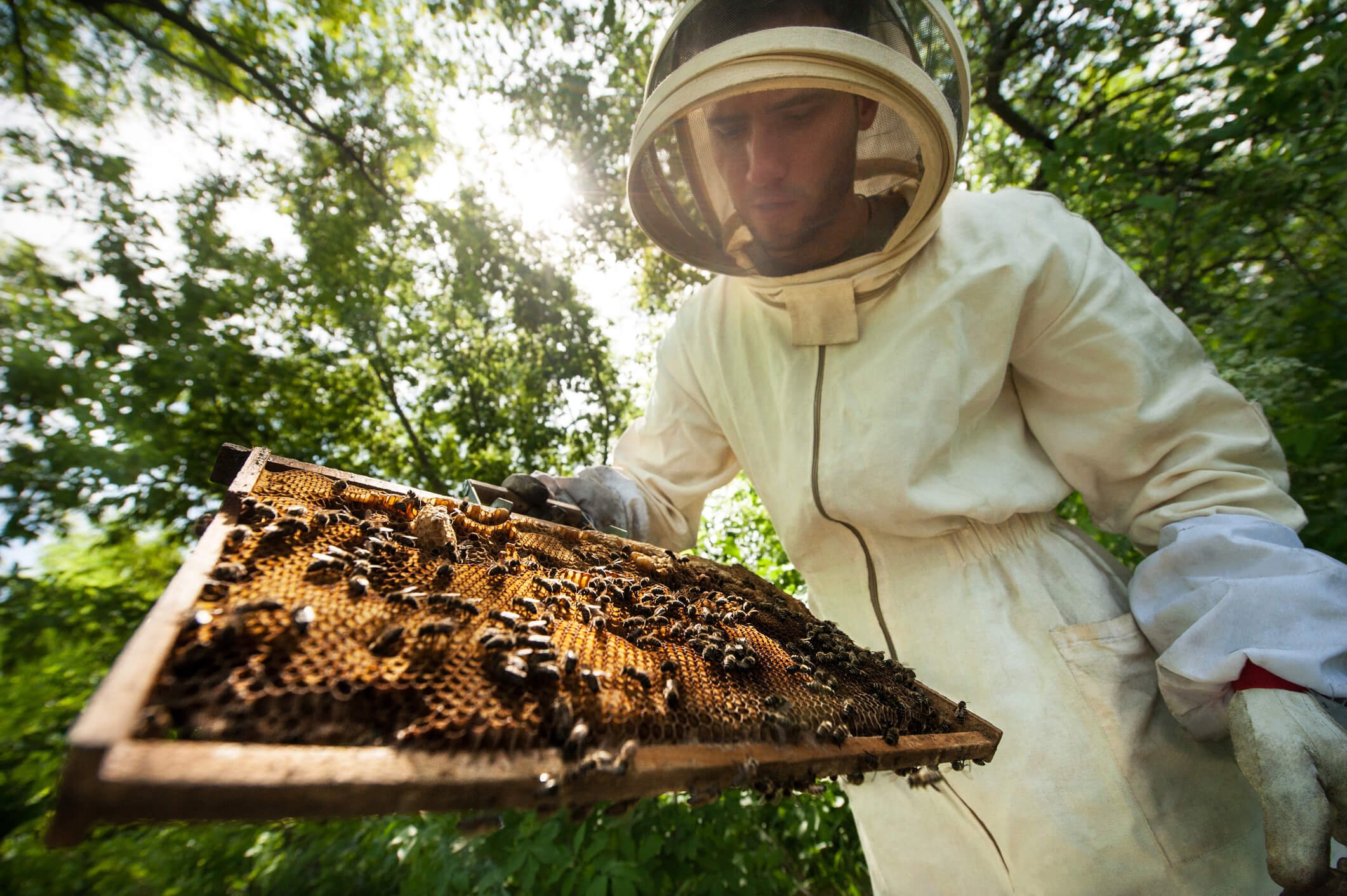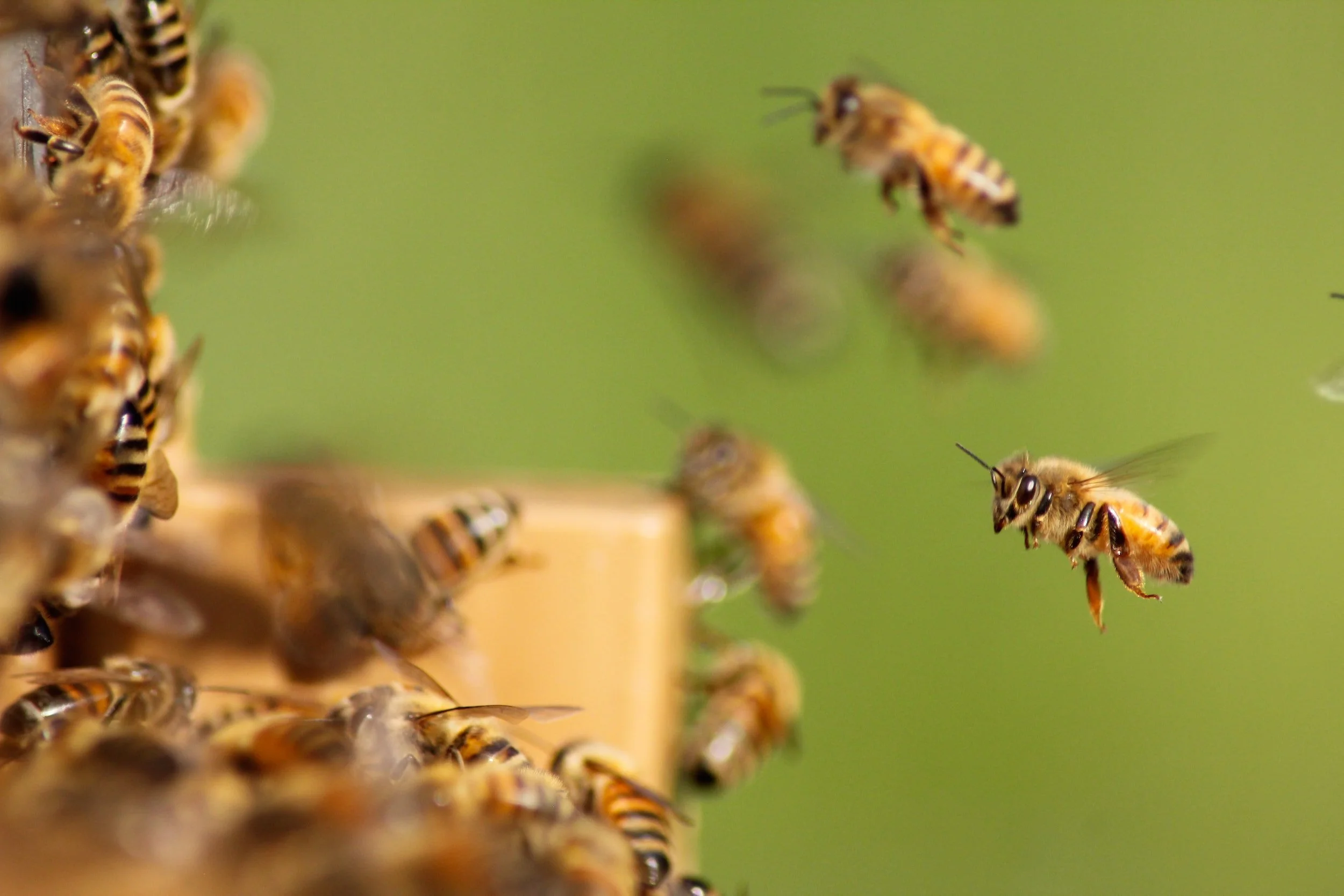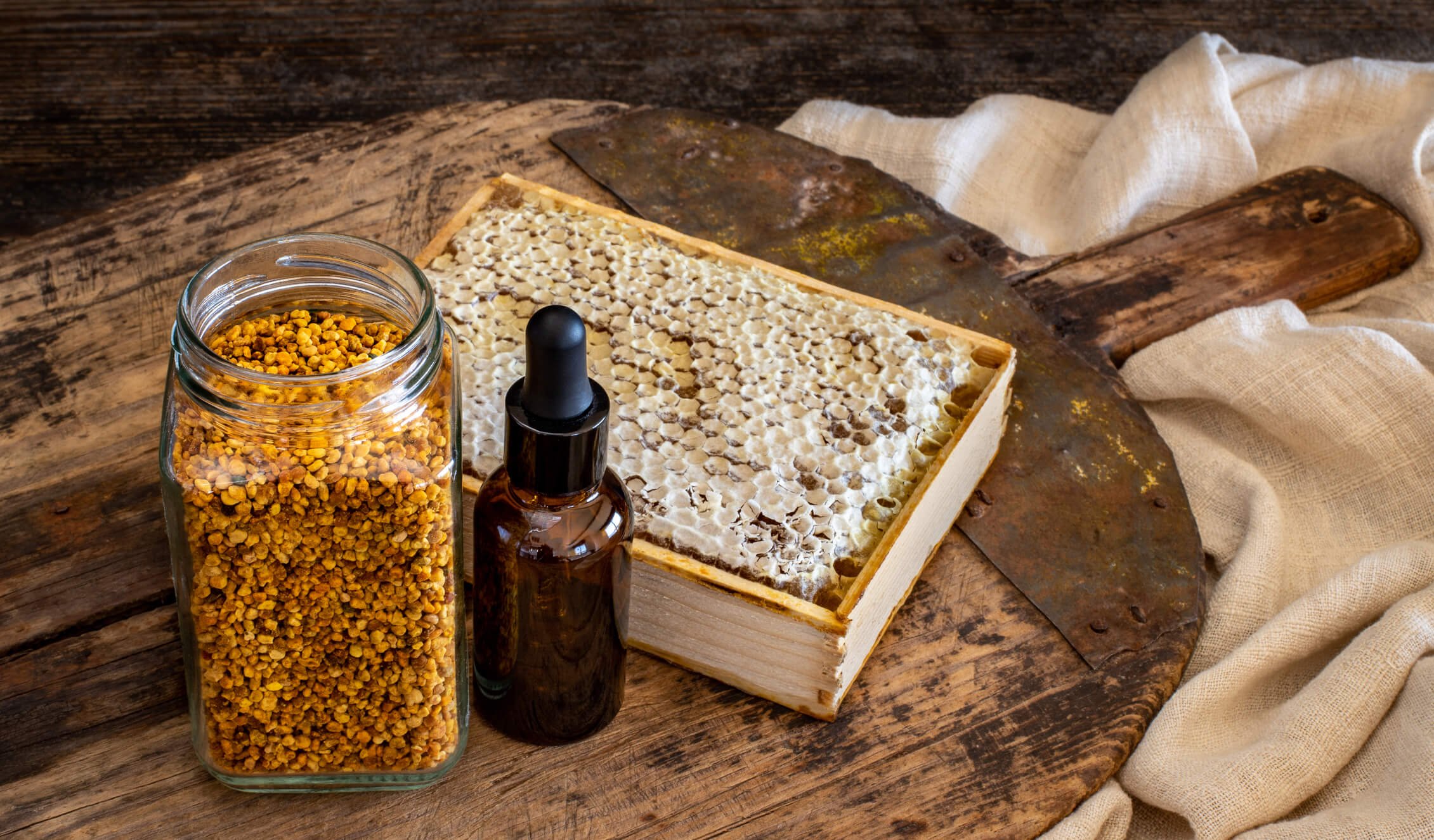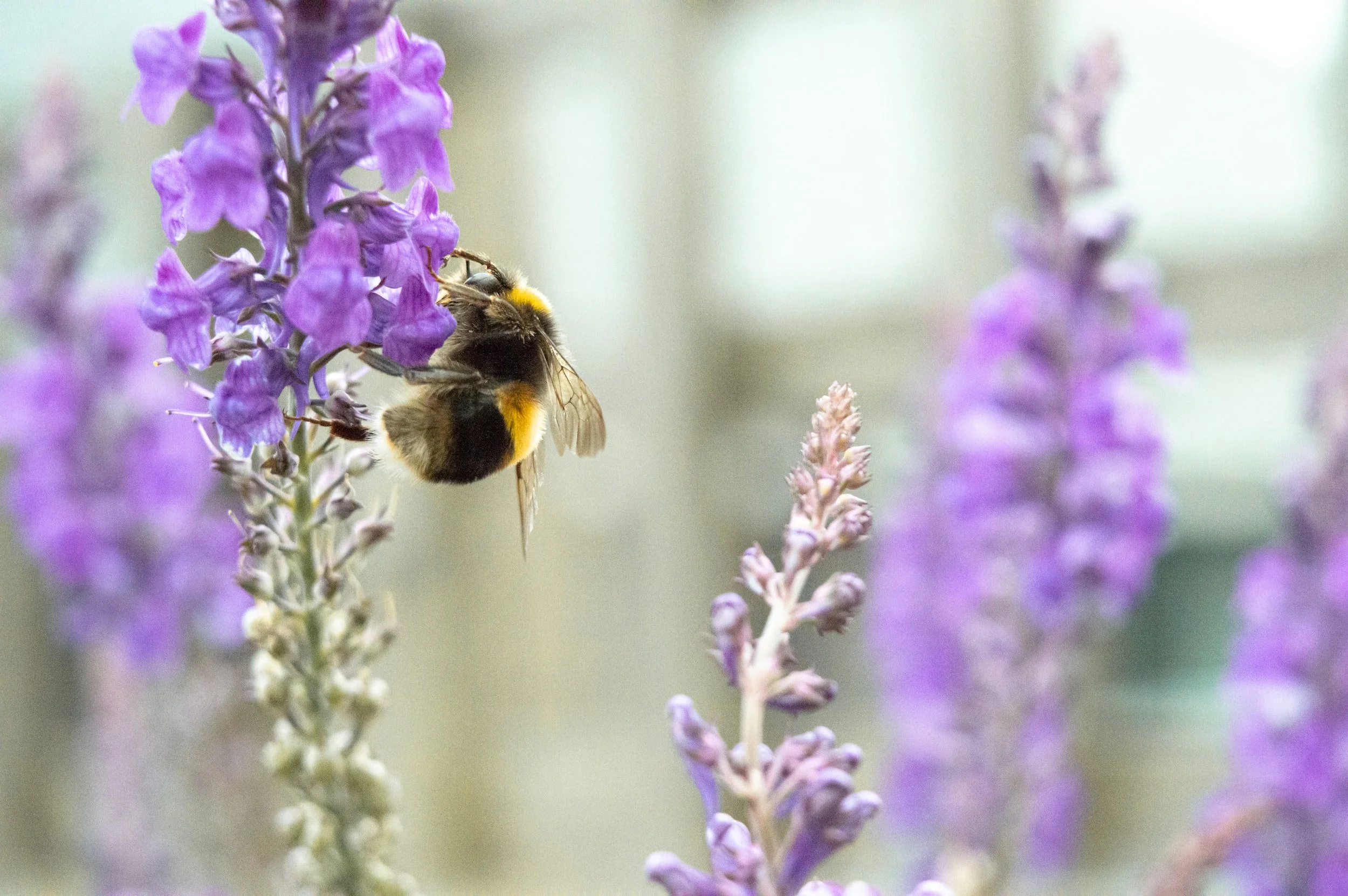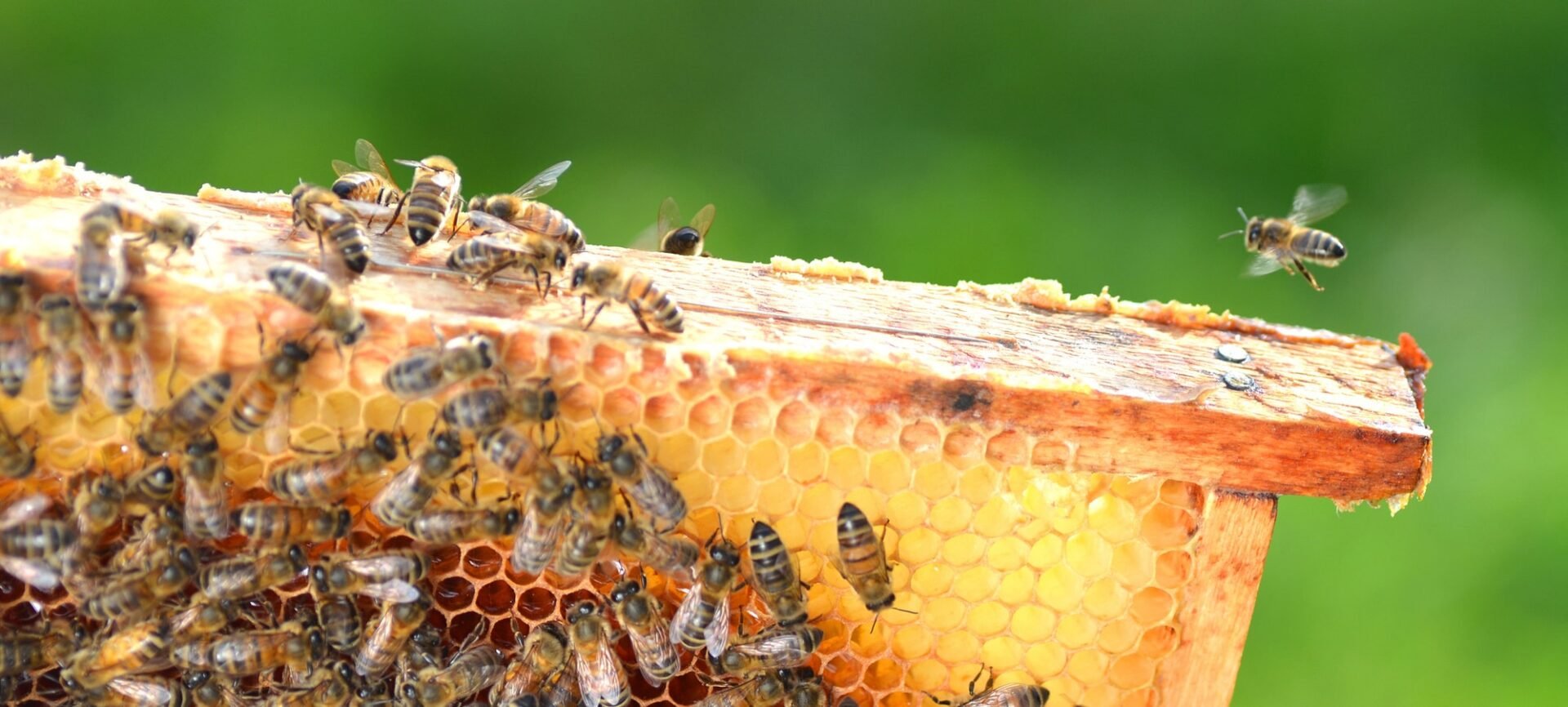Beekeeping & Honey Bees
If you're interested in keeping your own bees, keep reading! We'll guide you through the basics of beekeeping for beginners, whether you're a backyard beekeeper, homesteader, hobby farmer, or into apiculture farming aiming to start a business selling honey (how long does honey last?) and other bee products. Learning how to keep bees is fairly simple! Before you embark on your beekeeping adventure, there are a few factors to consider. Take some time to think about whether keeping bees aligns with your goals and interests.
Honey (What wine goes well with honey?) bees are vital pollinators, which means they are responsible for fertilizing a third of the crops we eat and a vast majority of the flowers and plants essential for ecosystems' health. They are the backbone of agriculture, playing a significant role in producing food and sustaining wildlife. So, when people ask, is beekeeping considered farming? The answer is a definite yes. Just because honey bees are small doesn’t make them any less significant. Honey bees also produce products besides honey, such as beeswax, propolis, royal jelly, and pollen. Learning how to start a bee farm helps ensure the preservation and expansion of these critical pollinators.
The Life Cycle of Honey Bees
A honey bee colony comprises up to 50,000 bees, each with a specific role in the hive. Worker bees collect nectar, pollen, and water, tend to the larvae, and care for the queen. The queen bee's primary function is to lay eggs, while male bees, or drones, are drones that reproduce with queen bees. The honey-making process is an intricate dance between worker bees and the environment. It involves collecting nectar, processing it into honey, and storing it in honeycombs for future use.
Honey Bee Threats
Unfortunately, honey bees face many threats, including habitat loss, pesticides, diseases, and climate change. Taking care of bees goes beyond conventional management practices; it requires an ongoing effort to promote sustainable agriculture and biodiversity and minimize the impact of harmful chemicals on the environment. Supporting local beekeepers and avoiding the use of pesticides that harm pollinators are small steps we can take to help honey bees thrive.
How To Start Beekeeping
So, how to start bee farming? Setting up a beehive can be a fun and rewarding experience, both for novice beekeepers and seasoned ones. However, doing a significant amount of research beforehand is crucial to ensure that you are prepared to care for the bees and manage the hive properly. You will need to purchase bee supplies Texas, including a bee hive (or build one), obtain a hive tool, a smoker, and a protective suit, and lastly, buy packaged bees for sale in Texas to get your hive started. You may also want to attend a beekeeping class to get familiar with the beekeeping techniques when buying bees in Texas and meeting other beekeepers in your area.
Becoming a Beekeeper
Raising bumblebees begins with enough research to understand the laws and regulations in your area regarding beekeeping. Some states require beekeepers to obtain a permit, while others don't. You should also check with your homeowner's association or local government to see if there are any restrictions on beekeeping in your area. You must ensure you follow all the rules and regulations and obtain the proper permits before beginning.
Once you have the necessary permits and know the legal requirements of beekeeping, you must purchase your equipment. Some essential equipment we recommend investing in includes a hive, a smoker, a bee suit, gloves, and a beekeeping tool kit. A necessary aspect of beekeeping is the hive, which serves as a home for your bees. You can choose Langstroth, Warre, or top bar hives depending on your preference.
Secondly, you need to obtain your bees. You can buy bees in Texas from a local supplier or order them online by searching for honey bees for sale in Texas. A package usually contains a queen bee and approximately three pounds of workers. Read reviews and ask for recommendations from experienced beekeepers before purchasing. When the bees arrive, you must introduce them to their new hive safely and gently.
So, how to raise bees in Texas? Your hive needs to be situated in an area with plenty of sun and protection from the wind. You should have plants or flowers that produce nectar within a half-mile radius of the hive since the bees will travel up to three miles to find food. It will also help if you have a water source near the hive so they can drink when necessary.
Once your bees are settled in their new home, inspect them regularly to ensure they're healthy. This is a crucial element of beekeeping. You must identify signs of disease or damage to the bees and the comb. You will also need to make sure they have enough food, particularly over the winter months.
Beekeeping is a rewarding hobby and one that is beneficial to the environment. Starting beekeeping isn't a challenging process, but it requires patience, commitment, and investment. Ensure you obtain the necessary permits and equipment, house your bees appropriately, provide them with food sources and water, and inspect them regularly. Remember that bees play a critical role in our ecosystem, and every effort you make to improve their lives will have a positive impact.
The Future of Beekeeping
Beekeeping is a sustainable and essential practice for ensuring global food security and preserving our planet's ecological balance. The role of honey bee colonies in agriculture and biodiversity cannot be overstated. Politicians and policymakers worldwide increasingly recognize the importance of bee conservation in the face of environmental challenges. There is also a growing movement of urban beekeeping, where bees are kept on rooftops, balconies, and gardens, helping create green spaces in our cities.
Beekeeping honey bees matter more than ever as we face a changing climate and diminishing biodiversity. Getting involved in beekeeping supports the bees' conservation and helps secure our agricultural future. From understanding honey bee life cycles to creating a bee-friendly environment, there's always something new to learn about bees. By adopting sustainable beekeeping practices and cultivating a love for this amazing insect, you can become a part of a growing network of beekeepers helping preserve one of nature's sweetest secrets.
Mason Bees
Dive into the world of mason bees, the solitary and efficient pollinators that can make a significant impact on your garden's health and productivity. Learn about their unique nesting habits, their role in the ecosystem, and how they differ from the more commonly known honey bees. Our article sheds light on the importance of mason bees in early spring pollination and provides tips on how to attract and support these essential creatures in your own backyard.
The Role of Bees in Texas Agriculture
Learn about how bees support our agriculture in Texas and what role they play in the production of vital crops like almonds, berries, squash, and more.
Why Start an Apiary?
Bees, essential for our food supply stability, healthy environment, and thriving economy. Find out why starting an apiary is a great way to help protect these pollinators and learn how you can get started today.
Essential Beekeeping Equipment
Getting ready to start beekeeping? Here’s your ultimate guide to the essential beekeeping supplies you need before you begin. From protective gear and hive tools, find out what equipment is necessary for novice beekeepers!
Where To Get Bees
Learn about the fascinating world of bees and find out where to get them for your beekeeping journey. Understand the basics of their society, how they work together in tandem with nature, and what tasks can these social insects do.
Harvesting and Bottling Honey
Learn the steps of harvesting & bottling honey with this ultimate guide. From extracting your crop to bottling it for consumption, you'll be well informed after reading this guide!
Keeping Your Bees Stress-Free
Learn the best strategies to keep your bees healthy and happy for maximum productivity. Get tips from experienced beekeepers about how to create a stress-free environment for your hives, so you can reap the rewards of all their hard work!
Beeswax and Other Bee By-Products
Learn how beeswax and other bee by-products play an important role in skincare, medical care, cleaning sectors, and more. Discover the hidden benefits of these products used for generations!
8 Best Flowers That Attract Honey Bees - Beekeeping Guide
Find out which flowers are best for attracting honey bees and make your beekeeping hobby a success. Learn more about the types of food sources that bees love, plus tips on how to boost their activity in your garden!
Wrap Up: Getting Started with Beekeeping in Texas
Learn about the art and science of beekeeping in Texas! Get tips from pros on how to start your own colony, what tools are needed to maintain a healthy hive, and other helpful information for getting started.
Urban Beekeeping: Expert Guide To Kickstart Your Backyard Farm
Don't let the challenge of urban beekeeping intimidate you. Our expert guide will help you understand the basics of beekeeping, so you can start your next-door apiary today!



